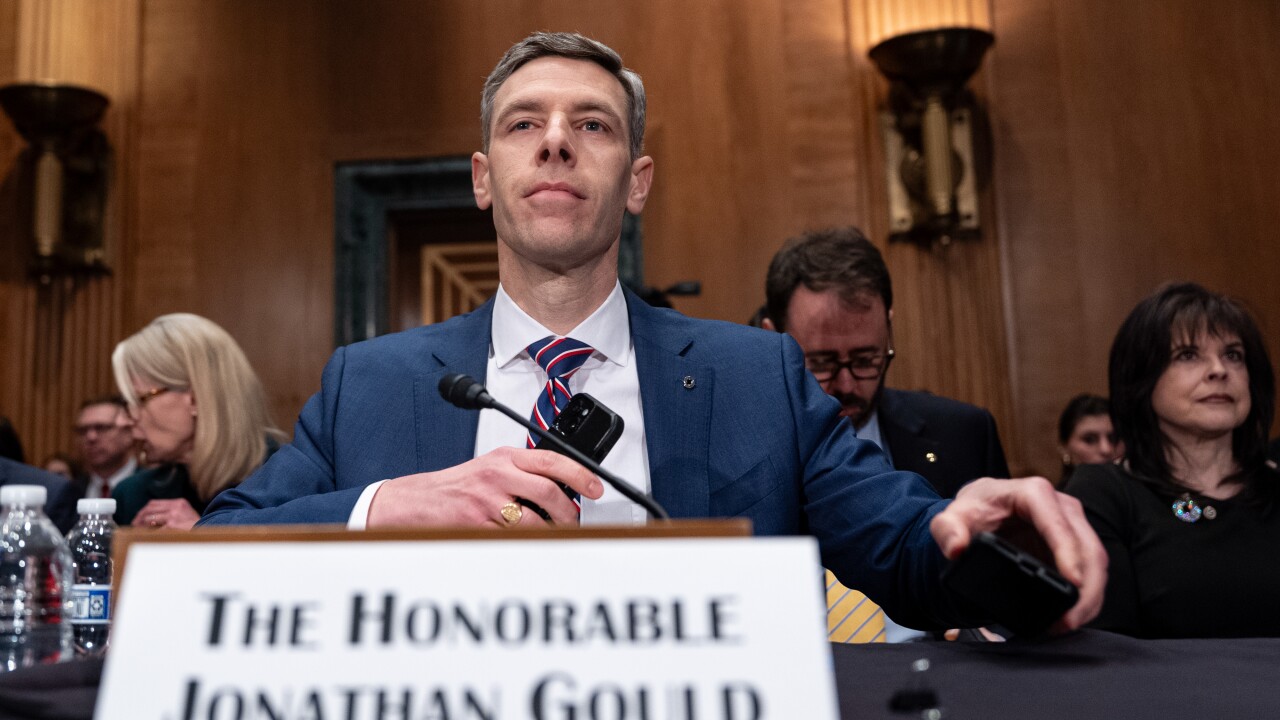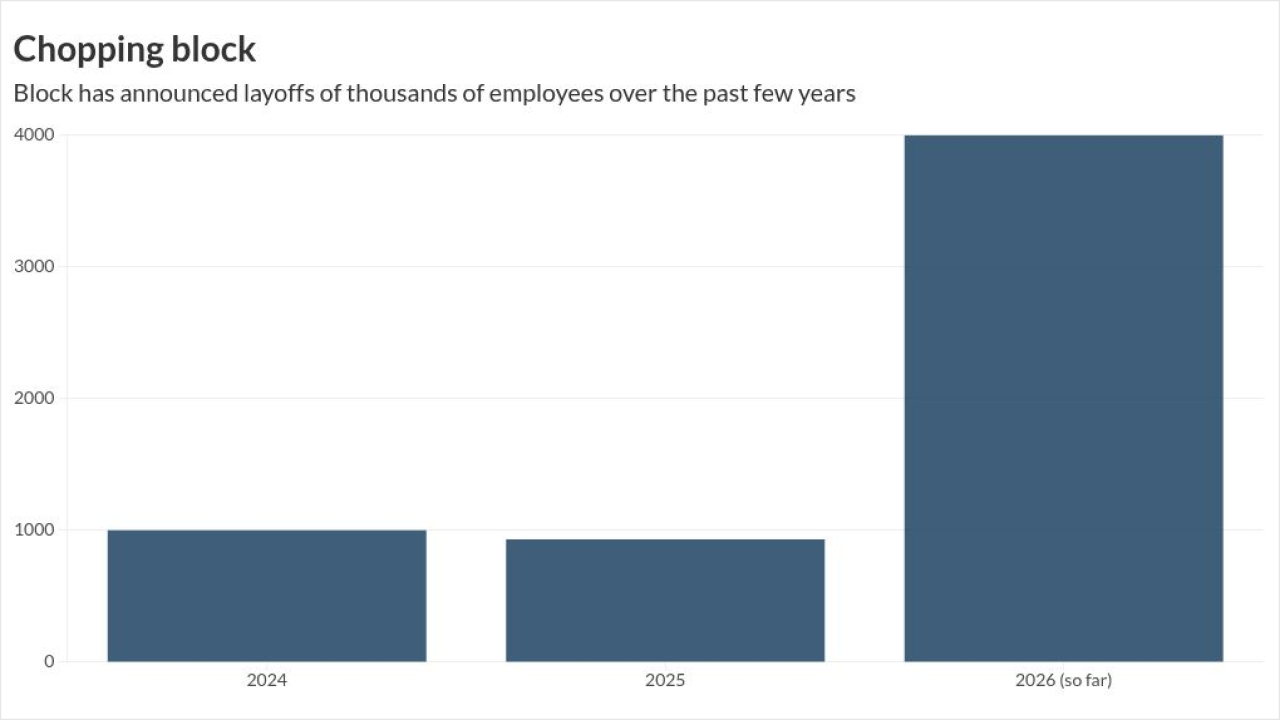-
Even as more states legalize marijuana, banks are abstaining from dealing with cannabis dealers. So call bankers stodgy. Call them unhip. Just don't call them noncompliant with industry regulations and federal drug laws.
February 1

As Colorado and Washington state prepare to legalize recreational marijuana sales, federal banking regulators are facing pressure to bring pot merchants into the financial mainstream.
The arm-twisting is coming from a hodgepodge of officials who don't necessarily care whether pot is legal, but who hope to prevent armed robberies and money laundering in states where it's currently being sold on a cash-only basis. That group includes governors, members of Congress, state banking regulators, and local law enforcement officials.
"The people of our state have spoken," says Scott Jarvis, director of the department of financial institutions in Washington, where a 2012 referendum legalized the recreational use of pot. "For this to really work, it needs to be in the banking system."
In recent weeks, the relevant federal agencies have signaled that they intend to provide more clarity to banks though it's unclear when they will do so, how far they will go, and whether their guidance will provide sufficient comfort to nervous bankers.
Involved in the deliberations are the Justice Department, the Financial Crimes Enforcement Network, the Federal Deposit Insurance Corp., the Federal Reserve Board, the Office of the Comptroller of the Currency and the National Credit Union Administration.
Their discussions hold important ramifications for banks not just in Colorado and Washington, but also in 18 other states, plus the District of Columbia, where pot is sold for medicinal use. Nationwide, the state-regulated markets for marijuana are currently worth an estimated $1.44 billion annually, according to a recent report by ArcView Market Research.
Many bankers are skittish about providing banking services to pot sellers and growers because federal law outlaws the possession of marijuana, even though some states allow it. No one believes that Congress is going to eliminate that fundamental conflict anytime soon.
So the question is: will federal regulators be able to provide banks and credit unions that are interested in the pot business a high enough level of assurance that they won't get in trouble for establishing ties.
"We have banks that would gladly bank these businesses," says Don Childears, president of the Colorado Bankers Association. "And we have others that say even if it was perfectly legal, they'd never touch it."
Marijuana businesses have long struggled to secure banking relationships, but the issue has taken on greater prominence since voters in Colorado and Washington approved the recreational pot measures. Both state laws go into effect next year.
In August, the Justice Department said that marijuana enforcement would be a low priority in states that meet certain criteria, signaling a desire on the part of the Obama Administration to defer in large part to the states. But
In October, Colorado Gov. John Hickenlooper and Washington Gov. Jay Inslee
The two Democratic governors suggested that banks should be required to do extra due diligence to ensure that anti-money laundering laws are not violated.
"Access to the banking system by these state-licensed businesses is a necessary component in ensuring a highly regulated marijuana system that will accurately track funds, prevent criminal involvement, and promote public safety," the two governors wrote in a letter to regulators.
At a Senate hearing earlier this year, King County, Wash., Sheriff John Urquhart testified that unless pot businesses can open bank accounts, there's likely to be more crime.
"Cash-only businesses are prime targets for armed robberies, and cash-only businesses are very difficult to audit, leading to possible tax evasion, wage theft and diversion of the resources we need to protect public safety," he said.
People who work in the marijuana business say that the industry's reliance on cash causes logistical hassles and sparks concern about employees' physical safety. "We have female members of our industry who have to walk into the [Internal Revenue Service] branch with tens of thousands of dollars of cash," says Steve Fox, lobbyist for the National Cannabis Industry Association.
That said, some banks have been willing to take the risks involved with providing services to marijuana businesses, likely because such accounts carry lucrative fees.
In recent letters and speeches, federal banking regulators have made clear that they are at least considering taking action.
During
Top officials at the Fed, the FDIC, the OCC and the NCUA
Whatever steps are ultimately taken would likely affect state-regulated markets for both medicinal and recreational pot.
Some in the banking industry doubt there's anything the federal government can do short of a change in the law that would overcome bankers' worries about the pot business. Reps. Ed Perlmutter, D-Colo., is sponsoring legislation that would protect banks, but it has attracted only 24 co-sponsors and remains in a House subcommittee.
"The question is: is guidance really enough?" asks Jim Pishue, president of the Washington Bankers Association. "I'm not sure that would be enough for banks to get comfortable getting into that line of commerce."
But others say that the impact of any regulatory guidance will hinge on its specific language. They acknowledge that many banks will stay away from the pot business, no matter what the guidance says, but say that other banks may find the opportunity more attractive.
"Each bank would probably need to consult their own legal counsel," says Childears, who heads the Colorado banking trade group.





